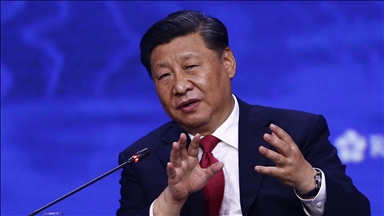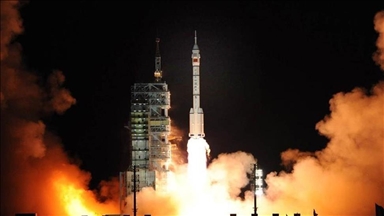
ANKARA
Oil prices took a sudden slump on Tuesday, reaching a new record-low point in the last five years because of the slowing growth rate of China, and its low Purchasing Managers’ Index.The HSBC Flash China Manufacturing Purchasing Managers’ Index stood at 49.5 in December, a seven-month low, said the banking and financial services organization on Tuesday.
Published prior to the monthly Purchasing Managers’ Index, the HSBC Flash China Manufacturing PMI is an indicator of China's manufacturing sector and is based on 85 to 90 percent of the total PMI survey which will be released on Jan. 2.
The PMI shows the economic well-being of the manufacturing sector. While a PMI higher than 50 indicates the expansion of the sector, lower than 50 shows a contraction, and 50 points reflects no change.
After the HSBC Flash China Manufacturing PMI showed a shrinkage for China, which is the world's largest net importer of petroleum, both benchmarks of crude oil prices fell sharply on Tuesday morning.
The global benchmark Brent crude oil price dipped below $60 per barrel, falling over three percent, and reaching $58.94 on Tuesday afternoon, the lowest level since July 2009, according to official figures.
Meanwhile, the American benchmark for oil prices, West Texas Intermediate, also fell below the $55 per barrel mark for the first time since May 2009, and was traded at $54.24 Tuesday at 14:20 GMT.
"As far as commodities or risk assets are concerned, they are always directly correlated to the pace of growth inChina," said Virendra Chauhan, an oil analyst for London-based energy market consultancy Energy Aspects.
Underlining that China has had steady growth rates over the past 10 years, Chauhan stressed that the country was probably the biggest contributor to the tightening of global oil balances after 2005.
While China had an annual percentage growth over 10 percent of Gross Domestic Product, GDP, between 2003 and 2007, this fell to single digits and reached 7.7 percent in 2013, according to World Bank data.
"It looks like that growth rate has started to flatten out to a certain extent. We are not saying that they are declining, but they are not going to grow double digit rates," Chauhan said.
"The Chinese government set a GDP growth target of 7.5 percent, but now we are talking about slightly lower than that," he added.
- Situation in Libya
Despite the shutdown of two oil exporting terminals in eastern Libya which pushed the prices up by almost three percent on Monday, both benchmarks continued their fall in prices since June.
"That was not significantly enough to stop the decline in oil prices," said Willem Auping, a strategic analyst at The Hague Centre for Strategic Studies.
Auping stated that regardless of the situation in Libya, the prices were expected to fall below $60 per barrel, because of the excess supply of oil in the world.
"The structural reason for the falling oil prices is the overcapacity in the markets," said Auping, adding that more oil producers will stop producing.
Chauhan highlighted that the door is always open for the $50 mark for Brent pricing, adding "The expectation is that another million barrels per day of stock will build up during the first half of 2015."
Oil prices are in steep decline in the last six months, falling more than 40 percent from $115 in June.
The oil price drop has also been linked to low global demand and excess supply of oil. Additionally, the increasing value of the U.S. dollar, of which the oil prices are indexed to, hampers the purchasing power of oil-dependent countries.








